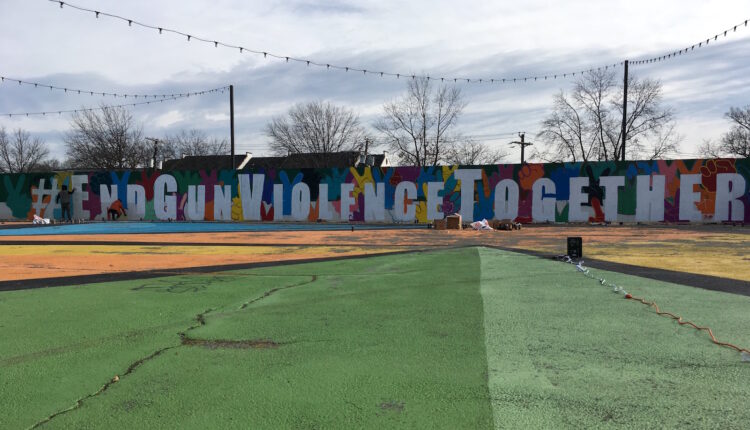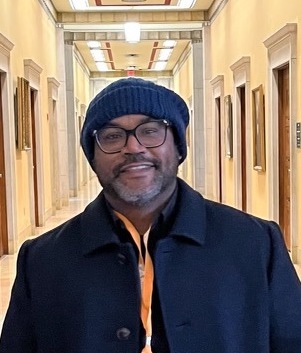
Anthony Petty: Violence interruption works, but the people on the front lines deserve to be treated like professionals
Public safety has become a dominant theme this election season, with questions related to gun violence and carjackings a regular feature of candidate forums, community meetings and constituent emails. And no wonder: A recent Washington Post survey found that 3 in 10 District residents don’t feel safe in their own neighborhoods — the highest percentage in more than two decades of such polls.

As a District resident who spent 30 years in prison for committing a murder at the age of 16, I’m relieved that fewer than half of the respondents in the Post poll think sentencing perpetrators to longer sentences is the solution. And as one of the DC government’s “credible messengers,” I’m even more heartened that 63% of residents understand the benefit of employing people like myself to intervene with at-risk youth and young adults, thus “interrupting” street violence before it escalates into serious crime.
The candidates are listening, with violence interruption and credible messengers cited as a priority in almost every campaign speech on public safety. And Mayor Muriel Bowser has listed violence prevention and diversion programs among the signature features in her proposed 2023 budget — although the total amount being allocated is just one-fifth of what she wants to spend on a beefed-up police force.
But at the same time, I look around at my colleagues and worry. Violence interrupters and the credible messenger teams who work alongside them provide intensive support to the individuals most at risk of committing crimes and losing the best of their lives to prison. Our work requires unrelenting vigilance and patience. The inevitable failures are soul-wrenching. And it’s quite literally life-threatening.
To have a chance to be successful, more than just an expansion of our numbers is required; we also need more investment in credible messengers and violence interrupters as a profession — meaning more sustainable salaries and the benefits necessary to cope with the risks of the job. We also need enough resources to provide the substantial services and programs people need to steer their lives in a different direction. At-large DC Council member Robert White, a candidate for mayor, has specifically recognized this need in his community-safety plan. All of the candidates who make violence interruption part of their talking points should follow his lead.
So, consider this an open letter to DC officials and the candidates running to keep their positions or to replace incumbents. If you believe in the power of prevention to control crime, then here’s what we need:
- Salaries that are commensurate with the effort, unique insights and risks required to work as violence interrupters and credible messenger staff. Not just anyone can do this work. People with lived experience — either via prison or simply by growing up in the distressed neighborhoods where most of the crime in DC takes place — have “cred” that trumps any advanced degree, and that should be recognized in the pay scale. Likewise, many of us who fill these roles have either come out of prison in middle age or are being asked to leave a way of life that is illicit but highly profitable. Pay that’s little better than minimum wage doesn’t cut it.
- Benefits that will protect us if — or when — the worst happens. One of my violence interrupter colleagues was recently caught in the crossfire of a drive-by shooting. Now he must navigate life with one leg. We deserve disability insurance and other safety-net services. When my colleagues are hurt or killed, my family pleads with me to quit. After all, I’ve already lost a big stretch of my life to prison, which was traumatizing in itself. I’ve wanted to work with troubled young people ever since I started mentoring new arrivals in prison. But my family is right that we have to think about ourselves as well.
- Serious funding for the programs we need to lure those few individuals causing most of the violent crime to choose a different lifestyle. We can’t just tell these people to stop selling drugs and carrying a gun. The former may be the only way they know to support their family, and they may see the latter as necessary for them to feel protected. As a recent analysis by the National Institute for Criminal Justice Reform showed, nearly half of all shootings are connected to a beef between members of rival groups. If we disarm people, we have a responsibility to help keep them safe. That means significant money for stipends, good jobs and/or safe places for them to go when they’re not at home or school — like more gyms, rec centers, and even studios where they can make music.
Intensive outreach can work. I’ve seen it happen. One of my clients was in a youth facility, and his father couldn’t afford to visit. His dad needed a job, so I helped him get one. Now the two are able to see each other and the son is doing better. If things had stayed the way they were, the son would have always thought his father didn’t love him and would probably be causing havoc. Now, however, the youth is on the dean’s list at school. It’s results like this that make us want to keep doing this work.
But to do that, we need a long-term commitment from our civic and government leaders, along with serious funding, support programs based on what the people on the street actually need, and recognition of our work as a profession deserving of the same professionalism that is accorded the police.
Anthony Petty was released from prison in 2020 under DC’s Incarceration Reduction Amendment Act. He is a credible messenger for East of the River Clergy-Police Community Partnership; a helper with DC’s Safe Passage Program; and outreach coordinator for the More Than Our Crimes network, which works to give a voice to District residents currently in prison or recently released.
About commentaries
The DC Line welcomes commentaries representing various viewpoints on local issues of concern, but the opinions expressed do not represent those of The DC Line. Submissions of up to 850 words may be sent to editor Chris Kain at chriskain@thedcline.org.


I appreciate knowing more about the reality of this violence interrupting and credible messenger work from someone in the thick of it. I support Mr. Petty’s ideas for proper compensation as they seem sensible and more than fair for the risks. Thank you, Mr. Petty.